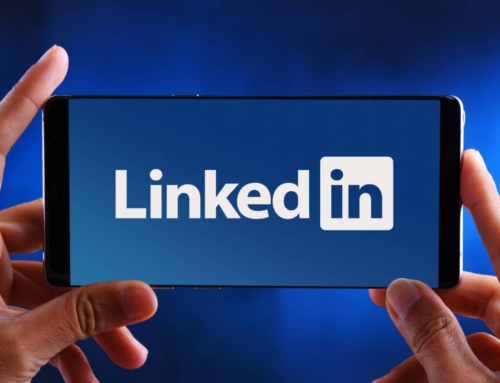By Janice Burch, Executive Resume Writer, Career Coach, Co-Owner at Pro Resume Center, LLC
There are numerous reasons people will stop working for months, a year or longer. In my experience as an Executive Career Coach, these reasons are often linked to medical issues, family needs, educational pursuits, or extended travel. However, taking that time off from work often poses a challenge for the job seeker, as it turns into the often-feared item to discuss in an interview – The Employment Gap.

Clients share those concerns with me frequently, and they most often come down to these general perceptions of what a future employer might think if they see a gap:
- I was let go from my last job, or something terrible happened
- I am not desirable in the job market
- I don’t like to commit – I gave up instead of sticking it out until I got a new job
- My skills and experience are outdated
- I am lazy
- I am too old
Sometimes, the fears are based on reality – but most often, they are not. Your initial thoughts can balloon into a perception that can instill fear into even the most qualified and talented candidates. You carry that into your job search, and it weighs around your neck like a weight.
It’s time to change that perception.
First – You Are Not Alone
Explaining a job gap is a more prevalent concern than one might think. According to a LinkedIn survey, two-thirds of the working population has some employment gap on their resume. In fact, after the pandemic, LinkedIn came up with new tools on its platform for job seekers to manage the Career Break, highlighting any new skills, volunteer work, or projects they ran or highlighting raising a young family.
Even with the evolution of how employers look at the “career break,” many still have concerns over how to – or if they should – include the information on their resume and profile.
The job gap is defined as three months in the world of resume writing, recruiting, and hiring — more than three months between jobs, or since you held your last job – will require some positioning and planning.
Second – Navigating the Gap is Not as Hard as You Think
In my years as an executive career coach helping clients successfully land their next best opportunity, here are MY TOP 10 TIPS for handling the employment gap:
- Don’t bring it up unless they ask you about it. No need to hurry to an explanation of something they are not asking about – it brings unnecessary attention to the gap and makes them begin to question – why so quick to share, or why so defensive about something I’m not even asking about?
- Covid and the Pandemic: The shutdown, chaos, and shuffling of employees, divisions, companies, roles and responsibilities is one of the easiest go-to explanations if your gap occurred from March 2020 to July 2022; you are among millions of candidates who were in the same boat. Simply tell them that your company was laid off, shut down, downsized, sold, merged, etc. They will understand.
- Provide as much information as YOU are comfortable sharing, honoring their question and your right to privacy. If they ask whether the time off was due to family or health issues, remember you are only compelled to answer in a way that protects your privacy and avoids any potential bias on their part.
- For instance, if you were battling cancer for two years, it is not their right to know this. It is your right to say something that protects you but still answers their question. Stick with “I was managing family medical issues that required full-time attention but am happy to say that all is well now, and my time is now my own to pursue my career goals. I’d like to land here, as I’ve watched with great interest as your company >>>>> fill in the blank.” This redirects the conversation to the company, the role and the job outline.
- If you are returning to the workforce after raising young children, say that you and your spouse decided it would be best to spend these early years at home, giving you extraordinary organizational skills, patience, emotional intelligence and maturity to handle challenging conversations and situations.”

- If you took an extended trip or pursued a passion like becoming a yoga teacher in Bali, or did a sabbatical in Egypt to study archaeology, or just moved to Mexico to work at an eco-farm and improve your Spanish, always remember to position what you LEARNED because of the experience in alignment with what they are looking for:
- A better understanding of cross-cultural communications
- Problem-solving
- Navigating another country
- Language fluency

- If you took a gap to pursue education, certifications, internships, volunteer, or learning experiences, then be sure to organize this information to speak to it in the interview – “I took two years off to pursue my MBA full-time onsite at NYU” or “I took the year to improve my knowledge, taking a course in leading global teams” or “I obtained my Project Management Professional Certification.” Or perhaps you took a year to volunteer with your family for Habitat for Humanity – or spent the year diving deep into a personal passion – yoga teacher training, conversational Mandarin, being with your children because your spouse was traveling for work. Today, there is more understanding of prioritizing family, and learning experiences, than ever before.
- Create a consultancy or company to cover the gap: I advise this ONLY if you took on work and your gap is over six months. If that is the case, then yes, add that to the resume if relevant to the work you are shooting for. What kind of work did you do? Did you help a colleague, client or friend with their small business planning – or advise your old neighbor in improving his storefront business sales and marketing plan? Did you help a friend set up an Air BNB and property management staff? Did you provide services to others that might be considered consulting – financial, marketing, operations, startup, training, performance, etc.
- Know when to offer up information: Employers are more understanding of employment gaps than ever before and are beginning to understand that these gaps don’t necessarily equal lesser skills or poor qualifications. Covid created record unemployment rates, and the average time for joblessness in 2022 was 27 weeks – six months – for 1.4M+ people, making the job gap the new normal.
- If the gap is less than 3 months or so, don't worry about it: If, however, it is six months to a year, be ready to discuss if asked. If it is a year or two, and you did something in that time that you can relate back to the job you are going after (PTA president, entrepreneurship, Certification or education), then add it into the appropriate section (volunteer, education, advanced learning, etc.) on your resume.
- Be sure your top value and accomplishments are highlighted in your resume and shine brighter than a brief job gap is the most important thing in securing an interview. Pay the most attention to that — stop sweating the gap, especially if it is under six months.
- Power up your LinkedIn Profile: know the top skills and value you have to offer a company and be ready to speak to it in an interview. Pay attention to dates, titles, skills, and the About section to ensure you are capturing your story. Explain in the About section how your job gap led to improved leadership, cross cultural understanding, compassion for your workers, and ability to navigate a world outside the one you were used to.
Would you like to work with us to power up your career story, establish your messaging, build a high-traction resume, LinkedIn profile and other job search materials? Call (800) 603-6623.






